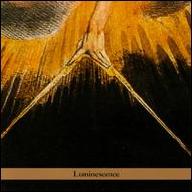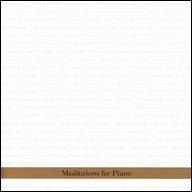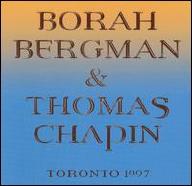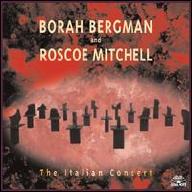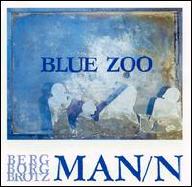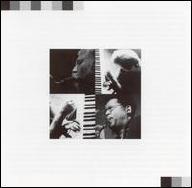Bergman played clarinet as a child, but didn't begin on piano until in his twenties. Bergman determined right away that he wanted to develop an individual voice. As he told the writer Francis Davis, "I knew there was no point in sounding almost as good as Bud Powell." The right-handed Bergman worked for years in strengthening his left hand. For a time, he practiced playing left-handed almost exclusively. Eventually -- as a pianist, at least -- he became ambidextrous. Bergman began recording late as well. His first four albums were solo efforts; the first, Discovery, was released in 1975 on the Chiaroscuro label. Three more would follow, including 1983's A New Frontier and 1985's Upside Down Visions, both on Soul Note. In 1992, the pianist began a series of successful duo collaborations. The first was Inversions on the Muworks label, with the young free-bop altoist Thomas Chapin. Following that came a pair of Soul Note albums that cemented Bergman's reputation, 1993's The Human Factor with drummer Andrew Cyrille and 1994's The Fire Tale with soprano saxophonist Evan Parker. The latter album was especially powerful, matching as it did two of the most formidable improvisers in jazz. His albums from this period include a duo/trio recording with saxophonist Roscoe Mitchell and vocalist Thomas Buckner, a trio with saxophonists Peter Brötzmann and Thomas Borgmann, and another trio with Brötzmann and Cyrille.
As the '90s drew to a close, Bergman's recorded output continued to rise substantially, as did his profile as one of the music's major contributors. That didn't diminish as the 21st century opened, with Bergman staying active, releasing several live sets and 2003's Meditations for Piano and 2009's Luminescence, both on Tzadik Records. However, Bergman made his last live performances around 2010, and Luminescence (a trio date with bassist Greg Cohen and drummer Kenny Wollesen, with John Zorn featured on alto sax on one track) would prove to be his final album. Reportedly living in a nursing home and suffering from dementia, Borah Bergman died on October 18, 2012 (the same day as saxophonist David S. Ware); the pianist was 85 years old. ~ Chris Kelsey & Steve Leggett, Rovi




